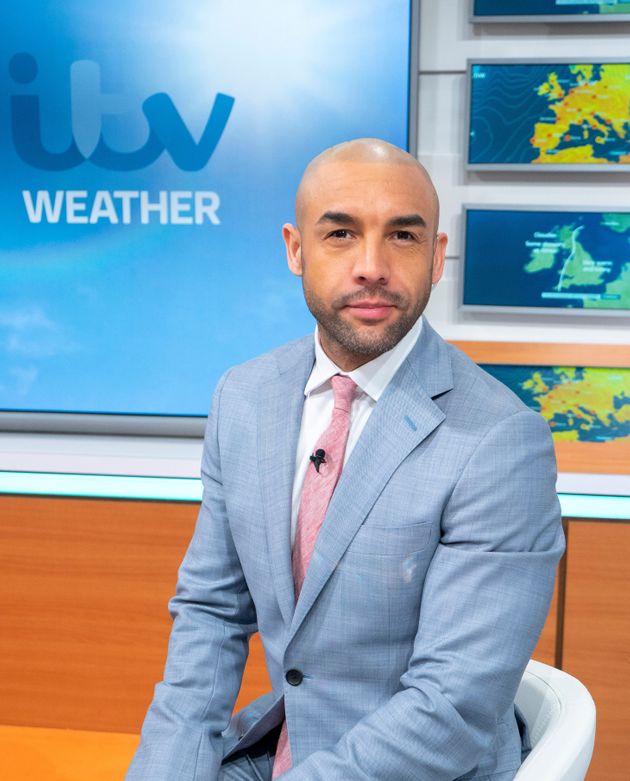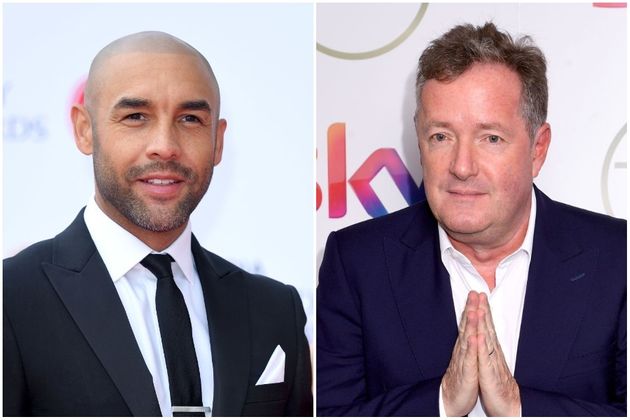Good Morning Britain presenter Alex Beresford has spoken out following former co-host Piers Morgan’s departure from the show.
On Tuesday morning, the two GMB stars were involved in a heated exchange live on air about Meghan Markle, in which Alex called out Piers’ comments about the Duchess of Sussex made the previous day.
This ended in Piers storming out of the studio, which Alex branded “pathetic” and “diabololical behaviour”.
Following the news that Piers has now left the show permanently, Alex has shared his thoughts on Twitter.
ITV/Shutterstock
“There is so much that could be said,” he wrote, insisting that “Piers’ departure sincerely wasn’t the conclusion I was hoping for”.
Alex explained: “Over the lat few years, Piers and I have had a lively, cheeky on-air relationship.
“We both wanted to be on the show on Tuesday morning, and from our very public conversations on Twitter, we both knew how strongly our opinions differed on the treatment of Harry and Meghan pre and post the interview that has split the world.
“I hoped we could reach a place of understanding. It’s sad that we weren’t able to get there, but challenging this opinion was not an outrage. On this occasion, we have to agree to disagree.”
He added: “I didn’t want him to quit, but I did want him to listen. Personally, Piers has always supported my growth. He’s given me advice on several occasions and for that I am grateful. I wish him well!”
Alex previously tweeted, after his on-air exchange with Piers: “I wish I had the privilege to sit on the fence. In order for me to do that I would have to strip myself of my identity and that’s not something I can do.
“It’s not any of our places to pick apart claims of racism in order to make us to feel more comfortable.”
ITV faced calls to reprimand Piers Morgan after Monday’s show, when he cast doubt on Meghan Markle’s recent claims about her mental health and her experiences of racism after joining the Royal Family.
“I’m sorry, I don’t believe a word she says,” Piers said. “I wouldn’t believe her if she read me a weather report, and the fact that she’s fired up this onslaught against our royal family, I think is contemptible.”
It was later revealed Piers had sparked more than 40,000 complaints to Ofcom, after which it was announced he was leaving GMB effective immediately.
Ken McKay/ITV/Shutterstock
Since the news of his departure was confirmed, the divisive presenter doubled down on his views on Twitter, later telling reporters: “I believe in freedom of speech, I believe in the right to be allowed to have an opinion. If people want to believe Meghan Markle, that’s entirely their right.
“I don’t believe almost anything that comes out of her mouth and I think the damage she’s done to the British monarchy and to the Queen at a time when Prince Philip is lying in hospital is enormous and frankly contemptible.
“If I have to fall on my sword for expressing an honestly-held opinion about Meghan Markle and that diatribe of bilge that she came out with in that interview, so be it.”












